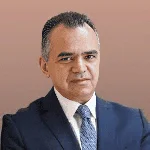
Dr. Kourosh Ghaznavi is a board-certified Internal Medicine Specialist and Rheumatology Subspecialist with over 25 years of clinical experience in […]
An internist is a medical doctor who specializes in internal medicine, focusing on the prevention, diagnosis, and treatment of diseases in adults. Often called “doctors for adults,” internists are experts in managing complex medical conditions and providing comprehensive care for a wide range of health issues.
Managing chronic conditions (diabetes, hypertension, heart disease)
Diagnosing complex medical problems
Providing preventive care and health screenings
Coordinating care with specialists
Managing multiple medications
Addressing overall health and wellness
Cardiovascular diseases
Endocrinology and metabolic disorders
Gastrointestinal conditions
Infectious diseases
Pulmonary disorders
Renal diseases
Rheumatologic conditions
4 years of medical school
3 years of internal medicine residency
Optional fellowship training (1-3 additional years)
Board certification in internal medicine
Cardiology
Endocrinology
Gastroenterology
Infectious diseases
Nephrology
Pulmonary disease
Rheumatology
Whole-person approach to medicine
Focus on prevention and wellness
Management of multiple chronic conditions
Coordination of complex care needs
Long-term patient relationships
Expert in physical diagnosis
Skilled in interpreting diagnostic tests
Experienced in differential diagnosis
Proficient in medical decision-making
Private practice offices
Hospital settings
Academic medical centers
Multi-specialty groups
Outpatient clinics
Urgent care centers
Annual physical examinations
Management of chronic diseases
Unexplained symptoms or complex diagnoses
Multiple medication management
Preventive health screenings
Coordination of specialist care
Expertise in adult medicine
Comprehensive approach to care
Skill in managing complex cases
Focus on preventive medicine
Coordination of specialist care
Long-term health partnership
Serving as primary care physicians for adults
Managing complex medical conditions
Providing preventive care services
Coordinating multidisciplinary care
Reducing hospitalizations through effective management
Improving quality of life for chronic disease patients
Board certification status
Experience with specific conditions
Communication style
Office location and hours
Hospital affiliations
Patient reviews and recommendations
Increased focus on preventive care
Integration of technology in patient care
Personalized medicine approaches
Team-based care models
Emphasis on value-based care
Internists play a vital role in the healthcare system by providing comprehensive, coordinated care for adults with complex medical needs. Their extensive training and holistic approach make them uniquely qualified to manage multiple health issues while focusing on prevention and overall wellness. Whether serving as primary care physicians or consulting specialists, internists are essential partners in maintaining adult health and managing chronic conditions throughout life.

Dr. Kourosh Ghaznavi is a board-certified Internal Medicine Specialist and Rheumatology Subspecialist with over 25 years of clinical experience in […]

Dr. Omid Modiramani is a highly experienced medical oncologist and clinical hematologist in Dubai with more than 12 years of […]

Dr. Mahdi Afzal Aghaie is a board-certified gastroenterologist and hepatologist based in Mashhad, Iran, with over 22 years of clinical […]

Dr. Shahrzad Ossare is a highly accomplished nephrologist in Tehran and professor of medicine, currently serving as the head of […]

Dr. Sara Keshtkari is a distinguished nephrologist in Tehran, specializing in kidney diseases and hypertension, with extensive expertise in dialysis […]

Dr. Shahdak Dadashpour is a highly accomplished nephrologist based in Tehran, Iran, with a distinguished academic and professional background. She […]

Dr. Reza Malayeri is a highly respected hematologist and medical oncologist based in Tehran, Iran, with extensive expertise in diagnosing […]

Dr. Masoumeh Saberian is a highly skilled hematologist and medical oncologist based in Tehran, specializing in the diagnosis and treatment […]

Dr. Mohammad Shakouri is a board-certified hematologist and oncologist with 13+ years of experience in diagnosing and treating: Blood disorders (thalassemia, hemophilia, favism) Blood cancers (leukemia, […]

Dr. Vahid Yousefi is a well-regarded endocrinologist based in Tehran, specializing in the diagnosis and management of endocrine and metabolic […]

Dr. Saeid Kalbasi is a highly skilled and board-certified endocrinologist in Tehran, specializing in hormonal and metabolic disorders. With extensive clinical experience, he provides […]

Dr. Manouchehr Mohammad Beigi is a highly regarded endocrinologist based in Tehran with decades of experience in treating a wide […]